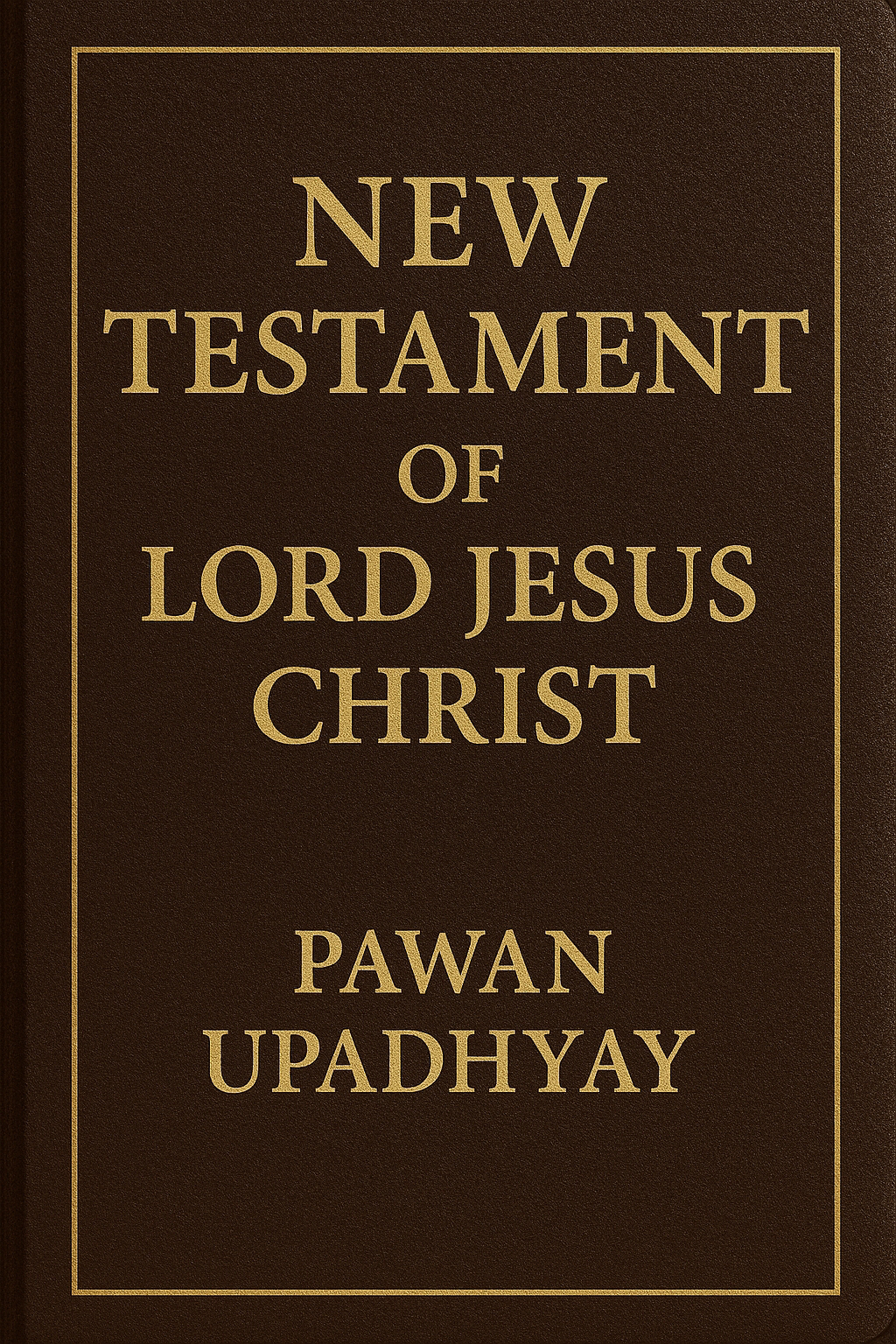The Eternal Soul of Lord Jesus Christ: A Metaphysical and Theological Study
The Eternal Soul of Lord Jesus Christ: A Metaphysical and Theological Study
By Pawan Upadhyay
Email: pawanupadhyay28@hotmail.com
Introduction
The nature of the soul of Lord Jesus Christ has fascinated seekers, theologians, and philosophers for centuries. If God is eternal, uncreate, and timeless, what is the exact status of the soul of Christ? Is it created, or does it share the same divine essence as God?
This blog explores a metaphysical model in which the soul of Lord Jesus Christ is unborn, unmade, uncreate, immortal, eternal, and timeless, fully united with the Supreme Soul (God). The foundation of this understanding rests on Jesus’s own words: “The Father and I are one.”
Understanding the Key Attributes
1. Unborn
Something unborn has no origin or point of creation.
The divine soul of Christ is understood to be eternally existent, not brought into being.
2. Unmade
“Unmade” means not shaped or produced by any external power.
A divine soul cannot be manufactured; it simply is.
3. Uncreate
Only God is traditionally considered uncreate — having no beginning, no external cause, and no dependence on anything outside Himself.
If Christ is one with the Father, then His soul must also be uncreate.
4. Immortal
Immortality means indestructible—never subject to death.
The divine soul of Christ cannot perish or dissolve.
5. Eternal
Eternal means no beginning and no end.
This is a property belonging only to the divine nature.
6. Timeless
Timelessness implies existence beyond the flow of time.
Christ’s divine soul transcends past, present, and future.
“The Father and I Are One”: The Basis of Divine Unity
When Jesus said, “The Father and I are one” (John 10:30), He was not speaking metaphorically.
This unity indicates:
Oneness of essence
Oneness of divine nature
Oneness of eternal attributes
Thus, if God is uncreate, eternal, and timeless, then the soul of Jesus—being one with God—shares these same qualities.
Is Christ’s Soul a Part of the Supreme Soul?
Many metaphysical traditions describe God as the Supreme Soul.
In this model:
Christ’s soul is not a separate created soul.
Christ’s soul is not a fragment.
Christ’s soul is the same eternal divine essence in full unity with God.
The divine essence cannot be divided; it is one, indivisible, and infinite.
Thus the soul of Jesus is not “part” of God—it is one with God.
Why This Matters
Understanding the eternal nature of the soul of Christ helps clarify:
His divine nature
His unity with the Father
The metaphysics of incarnation
The relationship between God and creation
This framework resolves the tension between Christ being fully divine yet appearing in human form.
Conclusion
The soul of Lord Jesus Christ carries all the attributes of divinity—unborn, unmade, uncreate, immortal, eternal, and timeless—because He is eternally one with the Supreme Soul, God. This truth is rooted in scripture, philosophy, and metaphysics.
Jesus does not possess a created soul; He possesses the eternal divine essence itself.
By Pawan Upadhyay
Email: pawanupadhyay28@hotmail.com
Introduction
The nature of the soul of Lord Jesus Christ has fascinated seekers, theologians, and philosophers for centuries. If God is eternal, uncreate, and timeless, what is the exact status of the soul of Christ? Is it created, or does it share the same divine essence as God?
This blog explores a metaphysical model in which the soul of Lord Jesus Christ is unborn, unmade, uncreate, immortal, eternal, and timeless, fully united with the Supreme Soul (God). The foundation of this understanding rests on Jesus’s own words: “The Father and I are one.”
Understanding the Key Attributes :-
1. Unborn
Something unborn has no origin or point of creation.
The divine soul of Christ is understood to be eternally existent, not brought into being.
2. Unmade
“Unmade” means not shaped or produced by any external power.
A divine soul cannot be manufactured; it simply is.
3. Uncreate
Only God is traditionally considered uncreate — having no beginning, no external cause, and no dependence on anything outside Himself.
If Christ is one with the Father, then His soul must also be uncreate.
4. Immortal
Immortality means indestructible—never subject to death.
The divine soul of Christ cannot perish or dissolve.
5. Eternal
Eternal means no beginning and no end.
This is a property belonging only to the divine nature.
6. Timeless
Timelessness implies existence beyond the flow of time.
Christ’s divine soul transcends past, present, and future.
“The Father and I Are One”: The Basis of Divine Unity
When Jesus said, “The Father and I are one” (John 10:30), He was not speaking metaphorically.
This unity indicates:
Oneness of essence
Oneness of divine nature
Oneness of eternal attributes
Thus, if God is uncreate, eternal, and timeless, then the soul of Jesus—being one with God—shares these same qualities.
Is Christ’s Soul a Part of the Supreme Soul?
Many metaphysical traditions describe God as the Supreme Soul.
In this model:
Christ’s soul is not a separate created soul.
Christ’s soul is not a fragment.
Christ’s soul is the same eternal divine essence in full unity with God.
The divine essence cannot be divided; it is one, indivisible, and infinite.
Thus the soul of Jesus is not “part” of God—it is one with God.
Why This Matters
Understanding the eternal nature of the soul of Christ helps clarify:
His divine nature
His unity with the Father
The metaphysics of incarnation
The relationship between God and creation
This framework resolves the tension between Christ being fully divine yet appearing in human form.
Conclusion
The soul of Lord Jesus Christ carries all the attributes of divinity—unborn, unmade, uncreate, immortal, eternal, and timeless—because He is eternally one with the Supreme Soul, God. This truth is rooted in scripture, philosophy, and metaphysics.
Jesus does not possess a created soul; He possesses the eternal divine essence itself.


Comments
Post a Comment